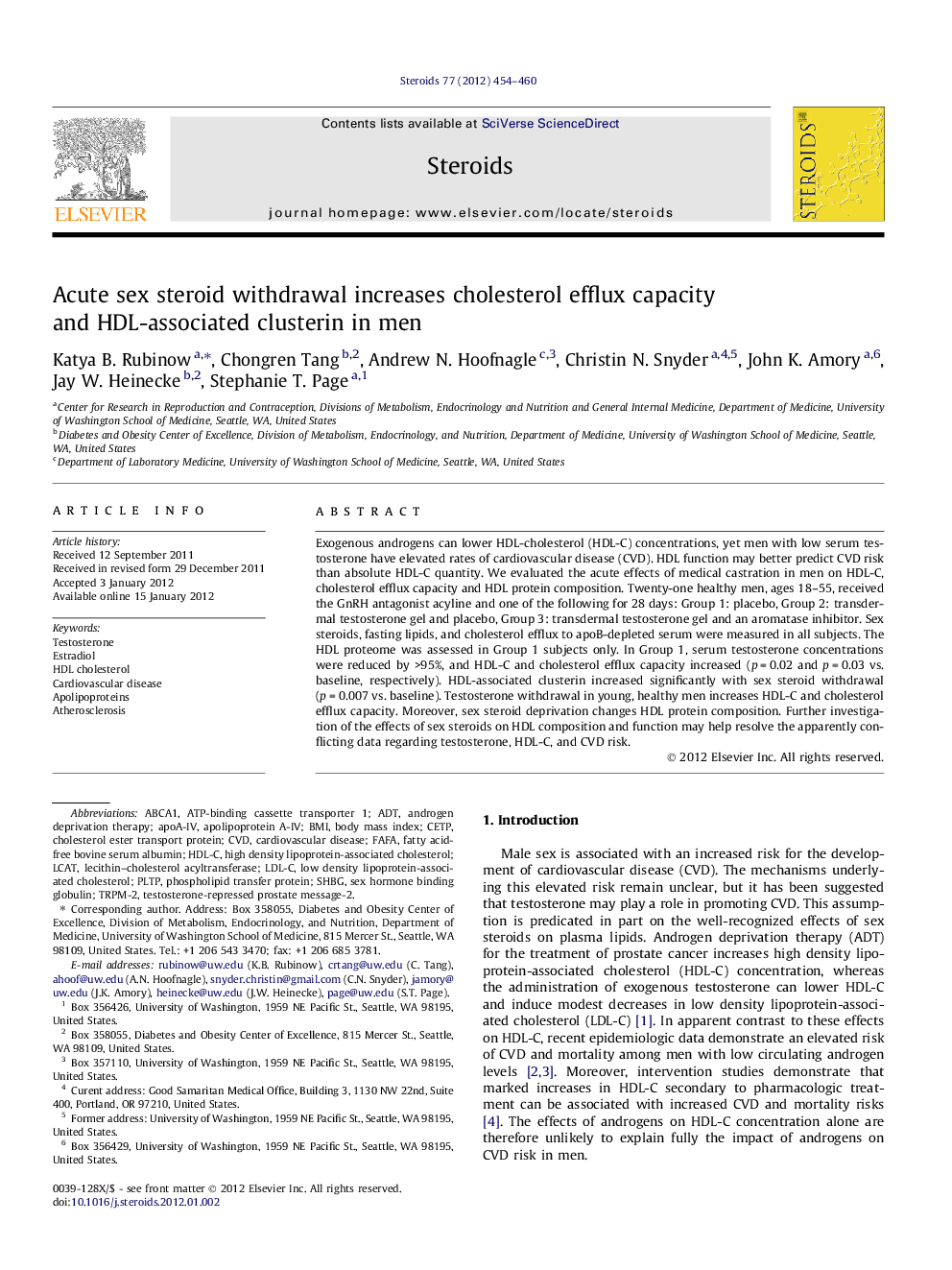| Article ID | Journal | Published Year | Pages | File Type |
|---|---|---|---|---|
| 2027994 | Steroids | 2012 | 7 Pages |
Exogenous androgens can lower HDL-cholesterol (HDL-C) concentrations, yet men with low serum testosterone have elevated rates of cardiovascular disease (CVD). HDL function may better predict CVD risk than absolute HDL-C quantity. We evaluated the acute effects of medical castration in men on HDL-C, cholesterol efflux capacity and HDL protein composition. Twenty-one healthy men, ages 18–55, received the GnRH antagonist acyline and one of the following for 28 days: Group 1: placebo, Group 2: transdermal testosterone gel and placebo, Group 3: transdermal testosterone gel and an aromatase inhibitor. Sex steroids, fasting lipids, and cholesterol efflux to apoB-depleted serum were measured in all subjects. The HDL proteome was assessed in Group 1 subjects only. In Group 1, serum testosterone concentrations were reduced by >95%, and HDL-C and cholesterol efflux capacity increased (p = 0.02 and p = 0.03 vs. baseline, respectively). HDL-associated clusterin increased significantly with sex steroid withdrawal (p = 0.007 vs. baseline). Testosterone withdrawal in young, healthy men increases HDL-C and cholesterol efflux capacity. Moreover, sex steroid deprivation changes HDL protein composition. Further investigation of the effects of sex steroids on HDL composition and function may help resolve the apparently conflicting data regarding testosterone, HDL-C, and CVD risk.
► The effects of androgens on cardiovascular disease risk in men remain unclear. ► Androgen deprivation increases cholesterol efflux to apoB-depleted serum in healthy men. ► Sex steroid withdrawal in men increases HDL-associated clusterin. ► Sex steroids appear to impact HDL composition and function in men.
